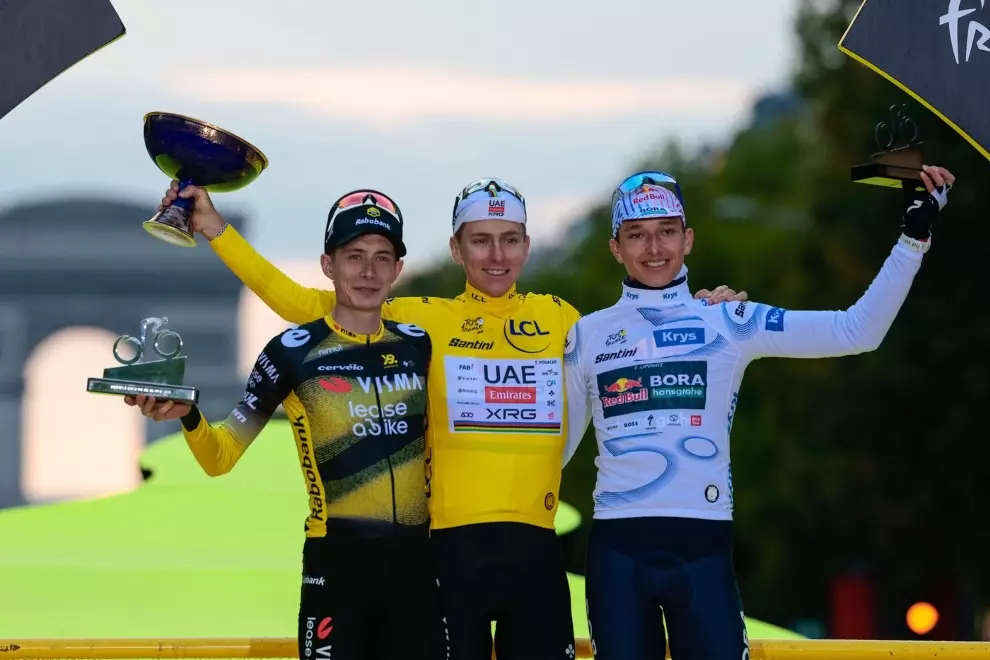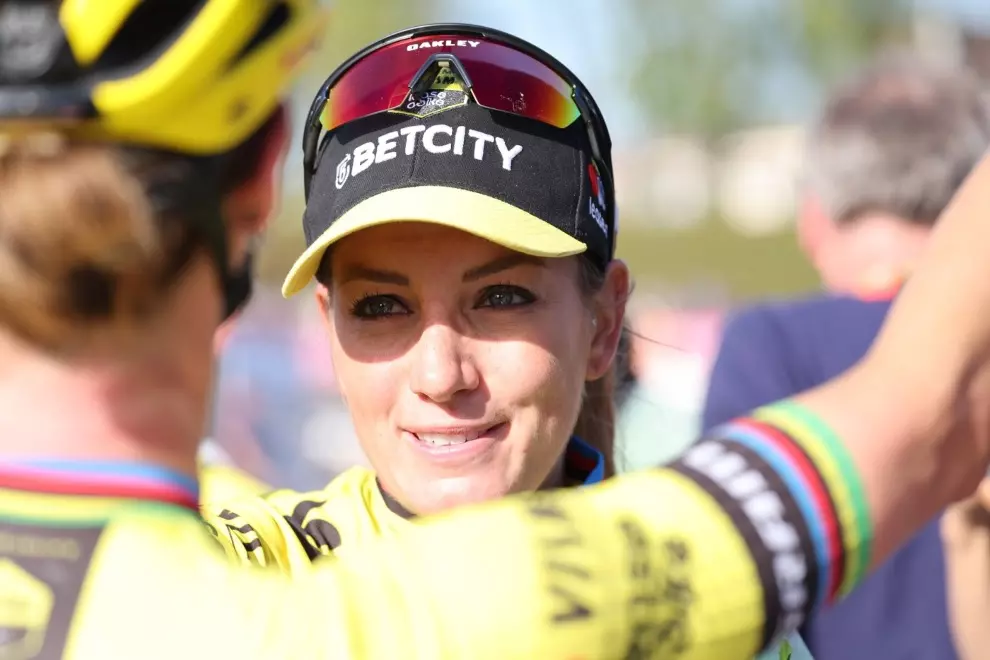Now, rather than go through each race stage by stage (I’ll do that next near in a separate article) I’m going to give you my highlights or takeaways on the stages that I think will be particularly significant in both races.
Let’s kick things off with the Tour de France Femmes avec Zwift. Starting in Rotterdam, the Netherlands, the third edition of the race (for some reason) has been reduced to 7 days but still has 8 stages. Using simple maths, that means 1 day will have a split stage, something that is pretty rare in modern racing at the highest level. This therefore will be an intriguing and busy day for everyone!
This aforementioned ‘double day’ comes on Tuesday 13th August, with stages 2 and 3, where the riders will face a short, no doubt stressful 67km stage from Dordrecht to Rotterdam before tackling a flat, urban time trial of only 6.3km through the streets of Rotterdam. Despite a total distance of only 73.3km, this will be a taxing day mentally and physically. The wind is likely to blow on the totally flat short road stage and could cause splits, whilst the TT will deliver us a sense of who has the legs from a GC perspective; many of the purer climbers will be on a damage-limitation exercise here.
Interestingly, the race doesn’t actually enter France until stage 5, but it’s stage 6 that looks intriguing to me. Over a distance of 160 hilly kms through the Vosges from Remiremont to Morteau, this stage will be difficult to control and could provide fertile ground for teams to go on the attack and take time ahead of the final 2 mountain stages. Looking at the way this year’s race was shaped, there will be a lot of teams that will use different terrain to take time, rather than waiting for the mountains, especially those looking to break the dominance of SD Worx.
Which brings us to the final stage of the race; this one was a badly kept secret really, but to hear it officially announced was still very cool indeed. The final stage will finish atop the mighty alpine ascent of Alpe d’Huez. Starting in Le Grand-Bornand over 150km, this stage has more than 4,500m of climbing, taking in the Col de Tamie and the iconic Col du Galibier on the way to Alpe D’Huez itself. Coming off the back of a similarly brutal stage the day before, stage 8 will be a thorough examination of stamina and climbing prowess amongst those wishing to take home the final Maillot Jaune.
In summary, the 2024 edition of the Tour de France Femmes avec Zwift looks very well balanced, but with a shape and course design that gets progressively harder. Taking in the Netherlands, Belgium and France and the hill/mountain ranges of the Ardennes, Vosges, Jura and Alps, it’s going be a true test over a broad range of terrains.

Onto the 111th Tour de France. My first, and rather obvious takeaway, is the fact that the Tour, for the first time in its history, is starting in Italy, in the city of Florence. Over the first 3 stages there is something for everyone: 2 hilly punchy stages then a first possible opportunity for the sprinters on stage 3 to Turin. Significantly, all of these opening Italian stages are over 200km, so a fair bit of fatigue will have already set in for stage 4, which marks a very early visit to the Alps. Although not a mountain-top finish, the 138km run from Pinerolo over the border to Valloire takes in 3 mountain passes, and two over 2,000m high. On the menu is the long haul to Sestriere, the Col de Montgenevre and the Col du Galibier, before the drop to Valloire. A sure-fire day for some top-level GC action in my humble opinion.
The next eye-catching stage for me is stage 9 (although the 25km TT that comes on stage 7 will of course be significant) which starts and finishes in the city of Troyes in the Grand Est region. It’s not the rolling parcours that has made headlines and divided opinion, it’s the 32km of gravel spread over 14 different sectors that has raised many an eyebrow. It’s the potential element of bad luck that troubles some, including Remo Evenepoel and Jumbo Visma manager Richard Plugge. Regardless of the views, gravel is in the Tour for 2024 and it remains to be seen if the spectacle will be worth it for some GC contenders. It’ll certainly be fun to watch!
Next up for me is Stage 14, deep into the race, and incredibly the first mountain-top finish. The GC will have already taken shape, but this stage will certainly see the first proper ‘shake up’ of the surviving GC contenders, which leads us into a final, brutal week of racing which is arguably the hardest in years. En route to the summit finish at Sant-Lary-Soulan (Pla D’Adet) we have the Col du Tourmalet and the little-used Hourquette d’Ancizan in what will be a decisive day for sure. We’ll certainly see some riders crack and fall away from contention here.
The following stage is even harder, an interesting way to celebrate Bastille day! Stage 15 runs over a gruelling 198km and is by far the hardest stage of the 2024 Grand Boucle. Featuring 5 Pyrenean mountains totalling around 5,000m of elevation with a summit finish at Plateau de Beille, this will surely help shape the final outcome of the race.
My final big takeaway is another obvious pick, but nonetheless an important one. Coming off the back of 2 Alpine summit finishes at Isola 2000 and the Col De La Couillole, we have a final individual time trial finishing in Nice, not Paris, due to the Olympic Games. Starting in Monaco over a hilly 34km and taking in the climbs of La Turbie and Col d’Eze, this will be a true test. Tour organisers ASO will be hoping for a cliffhanger (as will the fans) but with such an arduous, draining lead into the final stage, the GC may have already been decided. The wearer of the yellow jersey into this final TT will be hoping for a descent buffer as I think we’ll see big gaps opened up in this one.
For my part I think the 111th edition looks fantastic. The Italian start is historic and forces an early foray into mountains before a rolling loop into the heart of France leads us into a brutal final mountain onslaught, the likes of which we haven’t seen in decades.
Let me know your thoughts on both routes!




